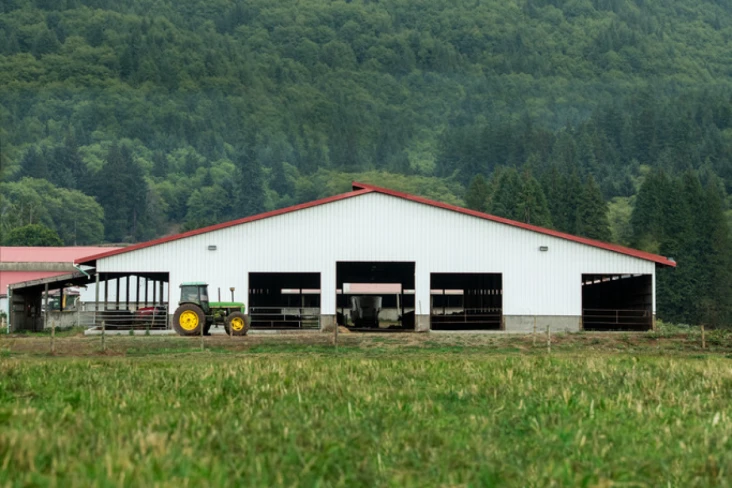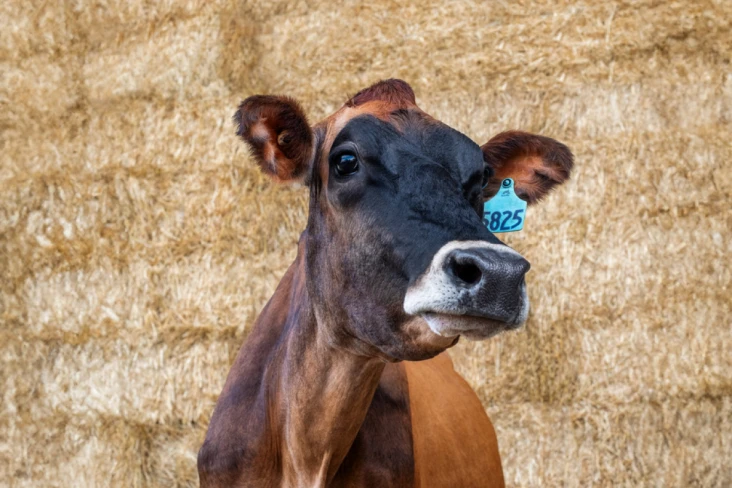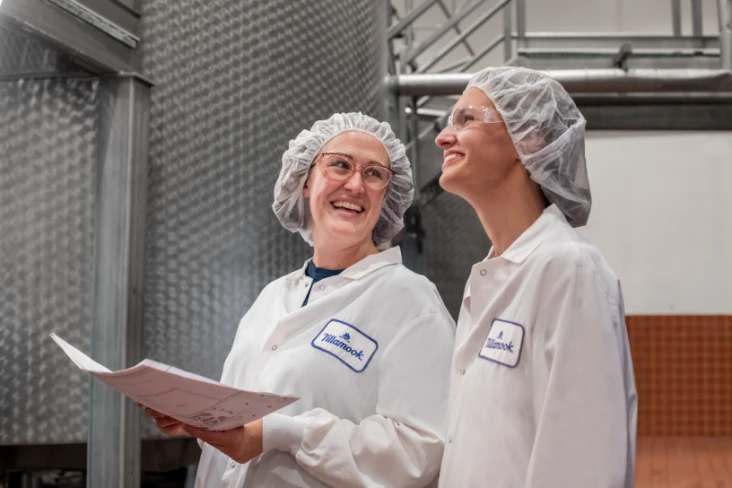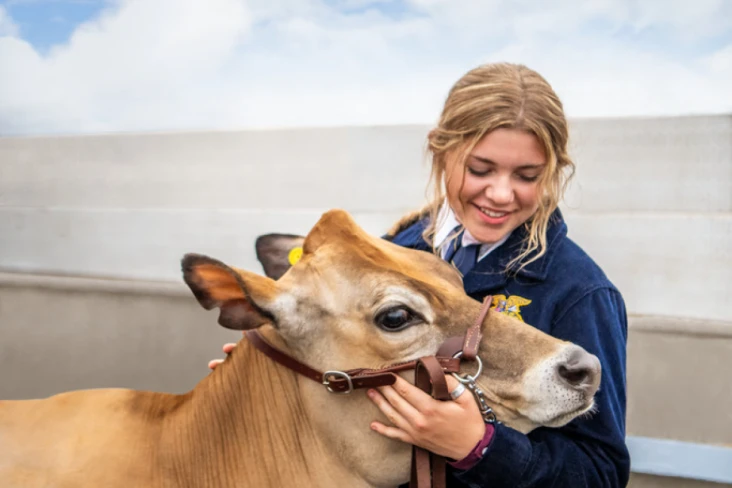At Tillamook County Creamery Association (TCCA), we uphold our tradition of doing things right by committing to a business model rooted in Stewardship. We understand that our purchased goods and services account for a large percentage of our total carbon footprint, and we recognize that the production and distribution of products and services may be associated with underlying social, environmental and ethical impacts. We seek to procure sustainably sourced raw ingredients, materials and services from our increasingly complex supply chain to uphold the integrity of our products. It is imperative that we gain traceability and transparency throughout our supply chain operations, including procurement of our milk supply, raw ingredients and materials.
“Tracing in the supply chain where your materials come from is important for brand loyalty and customer satisfaction.”
-Sandra Vijn, Director Sustainable Food, WWF
“Sustainable purchasing enables institutional purchasers to advance a sustainable future by leveraging their market influence.”
-Sustainable Purchasing Leadership Council (SPLC) 2019
Stewardship Charter: At TCCA, we uphold our tradition of doing things right by committing to a business model rooted in Stewardship. In 2017, we established a board-approved, third-party reviewed Stewardship Charter that defines our vision and our framework. Our Charter is centered on commitments to six key stakeholders, which encompass the issues most important to our business: Thriving Farms, Healthful Cows, Inspired Consumers, Enduring Ecosystems, Fulfilled Employees and Enriched Communities.
We use our Stewardship Charter as the anchor of our Stewardship Management System; that is, we have policies, procedures, documentation, measurement and communication, which cascade from the Stewardship Charter and guide our decision making. Adopting a management system like this is intentional—it ensures we embed our Stewardship commitments across all business functions, not just within our Stewardship Team. It also holds us accountable to our farmers, consumers, suppliers, employees, customers and neighbors. Upholding our Stewardship Charter is one of our five shared company values and one of our four business objectives, or time-bound goals.
One of our Stewardship Charter commitments is to Inspired Consumers. Our Supplier and Contract Manufacturer Expectations Manual outlines applicable programs and policies that support the production of safe, high-quality and sustainable products, including milk, and our sub-policy on Supply Chain Transparency outlines our operating principles for achieving traceability and transparency in our supply chain. Additionally, our Cooperative Member Handbook and the Contract Milk Supplier Handbook guide the contractual requirements for milk sourcing from our farmer-owners and contract suppliers respectively.
We have a Vice President of Supply Chain, who is supported by Senior Planning Manager, Senior Distribution Manager and the Director of Strategic Sourcing and Procurement and their teams. The Department’s scope covers purchasing, demand planning, supply planning, warehousing, logistics and shipment management, management of all external or contract manufacturers (including sourcing new contract manufacturers) and performance measurement of existing contract manufacturers.
The Environment and Community Impact team works cross-functionally with Supply Chain and other teams to uphold our commitment to Inspired Consumers. This includes benchmarking our and our suppliers’ environmental, social and ethical (ESE) impacts against world class CPG companies in our quest to be better. As part of this work, the Stewardship team researches best practices in sustainable procurement, measures and tracks supplier sustainability scorecards, responds to frequently asked customer questions on supply chain transparency and tracks related KPIs on a regular cadence.
Key Performance Indicators: We present qualitative and quantitative information alongside our financials to our leadership team, executive team and board of directors. In late 2018, we launched a Stewardship Supplier Engagement Program and are tracking our supplier participation in the Stewardship Supplier Engagement Program as a percentage. In 2019, we gained visibility into the sustainability performance of a portion of our high priority ingredient, packaging, IT and MRO suppliers via their supplier sustainability scorecards. We are currently in the process of assessing how we can best use the scorecards and expand results of our Program to achieve supply chain transparency.
Our Supply Chain team is simultaneously working on a broader Supplier Scorecard that will incorporate additional metrics to track business relationships. The eventual goal is to use combined metrics from all scorecards to drive performance and gain transparency and traceability in our supply chain network.
TCCA is farmer-owned and farmer-led cooperative that includes a group of farming families in Tillamook County. These dairy farmers provide high-quality milk and benefit directly from the cooperative’s growth and success. Nearly two decades ago, we outgrew the milk supply in Tillamook County in serving the customer and consumer demand for our products. We also started reaching production capacity at our flagship cheese and ice cream manufacturing facility in Tillamook. That’s when we made the intentional decision to expand our supply chain to source milk from suppliers who share our same values, but operate outside of Tillamook County. That growth supports more than 900 TCCA employees, our farmer-owners, other dairy farmers across the country and has also enabled us to invest millions of dollars back into our communities to help them thrive. So, while we are growing beyond Tillamook County’s geographic borders, we are doing so in a way that enables us to bring more high-quality dairy products to more people responsibly.
Throughout our supply chain, milk is our most important raw ingredient and while most of our cost of goods and our revenue is dependent on milk, all other ingredients and products are also sourced with the same attention and focus as our largest volume raw ingredient. With regard to milk, it is currently sourced through a combination of direct sourcing through TCCA cooperative farmer-owners, direct sourcing through non-owner contract supply agreements and indirect sourcing through our contract manufacturing partnerships. Our Stewardship Supplier Engagement Program will help us gain traceability and transparency into our supply chain. Right now, we are in the process of developing a dependable calculation to determine the percentage of our procurement budget spent on local suppliers. It is our goal to obtain this information in 2021.
Our other ingredients, materials and services are produced through a combination of internal manufacturing activities at our two manufacturing facilities located in Tillamook, Oregon and Boardman, Oregon, supply relationships with contract manufacturers located in western and mid-western U.S. and suppliers or subcontractors throughout the United States.
We recognize that transparency and traceability are critical in upholding the trustworthiness of our products and brand. We know that most of our impact lies in our supply chain; however, as with any other organization, our supply chain network is complex and difficult to navigate. Achieving 100 percent supply chain transparency will require time, ongoing engagement, continuous improvement and change management. We are passionate about this journey and proud of the progress we have made so far.
In 2018, we launched our first-ever Stewardship Supplier Engagement Program with a sustainability ratings provider for global sustainable procurements. We also joined the Sustainable Purchasing Leadership Council (SPLC) in 2019 as members to align our sustainable procurement efforts with global best practices and standards.
The intent of our Stewardship Supplier Engagement Program is to monitor and evaluate social, environmental and ethical performance of our supply chain partners and to work with them using a partnership-based approach that fosters continuous improvement and ongoing risk reduction. As part of this program, we are working to develop an understanding of our suppliers’ and contract manufacturers’ sustainability efforts and how they are driving meaningful improvements.
The Stewardship Supplier Engagement Program requires participating suppliers to complete a sustainability self-assessment survey that covers questions related to environmental, labor and human rights, ethical and sustainable procurement practices. The results of the initial survey phases are available to us and our suppliers as a customized Sustainability Scorecard against which supplier sustainability performance can be measured and tracked over the coming years.
We also request suppliers and contract manufacturers that source dairy ingredients directly from farms to participate in our Program. They are asked to provide supporting documentation on quality, safety and on-farm practice indicators to establish milk-sourcing traceability to the farm. Additionally, through our Supplier & Co-Manufacturer Expectations Manual, we expect our suppliers to commit to operating their businesses according to the United Nations Guiding Principles on Business and Human Rights.
Examples of additional considerations in the survey and Stewardship Supplier Engagement Program—based on the size, location and sector of participating suppliers— include, but are not limited to:
Environmental Considerations:
Adherence to general sustainable business practices;
Record of documented policies, actions and results regarding environmental management;
Record of monitoring and periodic review of environmental performance;
Awareness of potential environmental impacts and risks;
Implementation of processes to mitigate potential environmental impacts and risks;
Design of products and services with environmental considerations in mind; Tracking and minimization of energy, water and raw material usage;
Tracking and maximization of the use of recyclable, compostable and renewable materials;
Tracking and minimization of waste production and proper handling and disposal of waste materials; and,
Tracking and minimization of greenhouse gas (GHG) emissions and air emissions.
Ethical Considerations:
Anti-corruption and fair competition practices;
No conflicts of interest;
No fraud or bribery; and,
No unauthorized access to personal and business information.
Sustainable Procurement Considerations:
Environmental performance of suppliers and manufacturing partners; and
Social practices of suppliers and manufacturing partners.
Human Rights:
Right to legal wages and benefits;
No child labor, slave labor or forced labor;
Maintenance of health, safety and hygiene;
Freedom of association;
Fair working hours and working conditions;
Equality of treatment;
Fair remuneration; and,
Fair employment terms.
In the spirit of continuous improvement, we will evaluate the maturity of our overall Stewardship Supplier Engagement Program and refine our vision for supply chain transparency through sustainable procurement. This will allow us to identify ways we can better support our suppliers and contract manufacturing partners in their own sustainability performances.
We recognize that robust sustainability initiatives are becoming a requirement for doing business with many of our customers and consumers. As an example, at the request of one of our customers, in 2019, our Tillamook and Boardman manufacturing facilities underwent their first-ever social and ethical compliance audit. The standard we followed is known as SEDEX (Supplier Ethical Data Exchange), and the audit is referred to as SMETA (Sedex Members Ethical Trade Audit). Many companies around the world use the SEDEX platform to collect responsible sourcing data from their supply chains and suppliers on labor standards, health and safety, environment and business ethics. Like us, our customers also want to minimize risk in their supply chains and ensure that their business partners adhere to strict standards. The audit assessed our performance in the Fulfilled Employees, Enduring Ecosystems and Inspired Consumers commitments of our Stewardship Charter to determine whether we have a safe and comfortable work environment for our employees.
Our Tillamook facility’s overall performance in the SMETA audit was comparable to the top 10 percent of companies that are audited. Knowing that we performed well in this area is a confirmation that we are working in the right direction and upholding our commitment to Stewardship.
The California Transparency in Supply Chains Act of 2010 requires companies to disclose efforts to eliminate slavery and human trafficking in supply chains. As a socially responsible, farmer-owned and farmer-led cooperative since 1909, Tillamook County Creamery Association (TCCA) requires compliance with all applicable laws, rules and regulations in the jurisdictions in which we conduct business, including laws related to the prohibition of human trafficking and slave labor.
Through our Supplier & Co-Manufacturer Expectations Manual, we expect our suppliers to comply with the California Transparency in Supply Chains Act. We do not currently engage in detailed actions described in Section 3(c)(1)-(5) (verification, audits, certification, internal accountability and training) of the California Transparency in Supply Chains Act.
This statement is made in compliance with the California Transparency in Supply Chains Act of 2010 and is not directed nor is it to be interpreted under any other law or regime.

U.N. Sustainable Development Goals
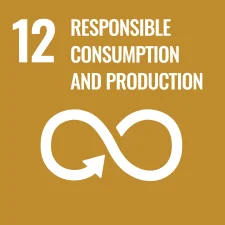
Goal 12
Ensure Sustainable Consumption and Production Patterns
Through our Stewardship Supplier Engagement Program and a heightened focus on our supply chain, we are taking steps towards sustainable consumption and production patterns.

Goal 13
Take Urgent Action to Combat Climate Change and Its Impacts
We have taken the initial steps to identify and to understand our greatest climate change, as well as those of our supply chain partners.

Goal 10
Reduce Inequality Within and among Countries
Our Stewardship Supplier Engagement Program requires that suppliers provide information on ethical and human rights considerations.
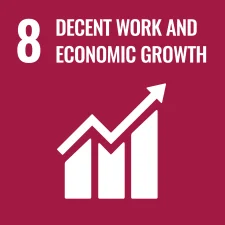
Goal 8
Promote Inclusive and Sustainable Economic Growth, Employment and Decent Work for All
Continued growth and strategic procurement allow us to provide more jobs for the local economies. We are working to ensure our business partners provide similar opportunities.
